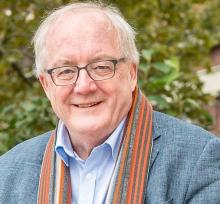The Department of Applied Mathematics is pleased to host this series of colloquium lectures, funded in part by a generous gift from the Boeing Company. This series will bring to campus prominent applied mathematicians from around the world.
Title: Modeling and simulation of cancer evolution in single cells
Abstract: Understanding the role of copy number variation in tumor evolution has long been a challenge, in part because identifying subclones from bulk DNA sequencing data is hard. Recent advances in single-cell whole genome sequencing, however, enable profiling of copy number aberrations at high resolution in thousands of cells. Single-cell genomics data from these technologies has enabled quantitative measurements of tumor dynamics, and measurements of the rate of chromosomal aneuploidy, whole-genome duplications and replication errors in tumors.
To better understand clonal evolution, we have developed a detailed model for studying single-cell dynamics in a population of cells, incorporating somatic copy number changes, clonal selection of driver mutations and accumulation of neutral passenger mutations. Simulation of the model follows population dynamics as input by the user, generates the clonal evolution forward in time, where clones are defined by their copy number and driver mutation profiles. The phylogeny of a sample is then constructed backward in time. The algorithm is designed to be efficient for large cell populations while maintaining statistical accuracy.
We present two examples exploiting the simulation. The first follows the neutral evolution of copy number events in the population of epithelial cells in the fallopian tube, the second investigates the evolution of high-grade serous ovarian cancer (HGSOC) driven by genomic instability. I will outline how Approximate Bayesian Computation may be used to estimate model parameters. By simulating real sequencing reads from the ideal data provided by the model, the simulator may also be used to calibrate clonal reconstruction algorithms used on single-cell DNA sequencing data, with some useful consequences.
Youtube: Watch the talk online here.
